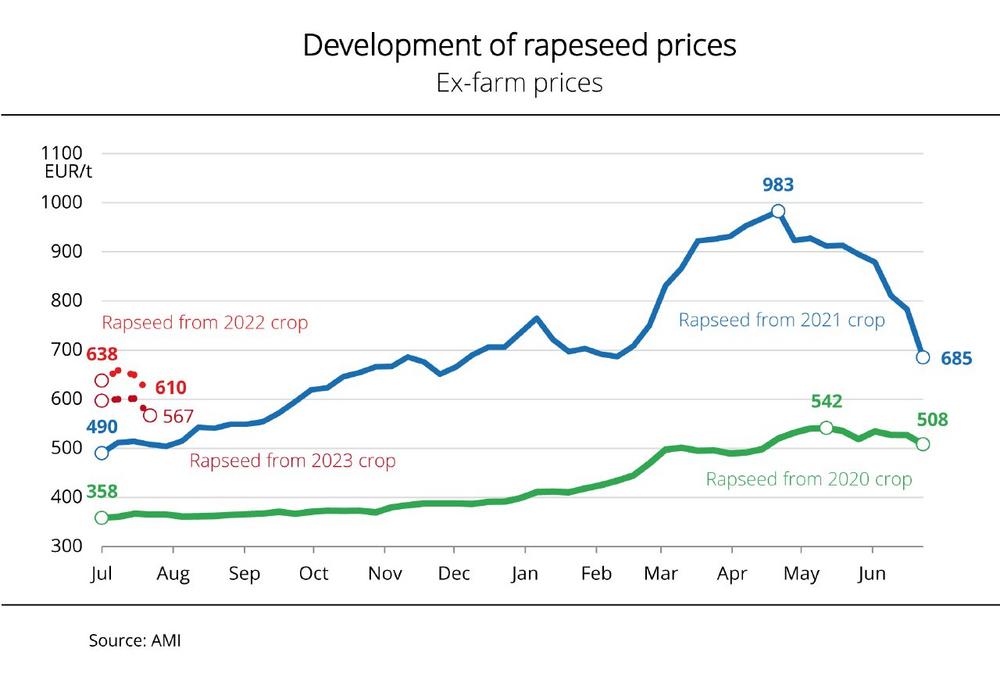Uncertainties about Ukraine’s shipping potential, the "weather market" in North America and the ongoing harvests in Europe led to strong fluctuations at the futures exchanges. According to Agrarmarkt Informations-Gesellschaft (mbH), the unexpectedly good rapeseed output provided scope for downward movements in price. After market participants had anticipated sharp declines in yield due to the continuing drought and heat, achieved yields have previously been a positive surprise. For example, according to the latest figures, French farmers harvested between 30 and 55 decitonnes of rapeseed per hectare from their fields. As a result, market participants were cautiously positive about rapeseed supply in the current crop year. In Germany, the rapeseed harvest was also progressing. In some locations, it was already complete. Yields were good to very good at 35 to 45 decitonnes per hectare with up to 5.5 per cent moisture content. According to initial reports, the oil contents are between 43 and 45 per cent, which is also more than satisfactory. In some regions, harvest operations were occasionally interrupted by rain and storms, but were quickly resumed afterwards.
In contrast, demand was very low as processors were stocked up well via contracts. In other words, the prices shown do not reflect producers‘ actual selling or contract prices. However, some effort is currently needed to avoid supply gaps caused by limited freight options. Low water levels have made river transport to the inland ports much more difficult. Cargo space has been scarce and expensive, especially as high energy prices are driving transport costs anyway.
Producer prices were lowered once again in Germany in calendar week 30. They averaged EUR 610.50 per tonne, which was down EUR 39.20 per tonne week on week. Prices reported by the individual German states ranged from EUR 555 to EUR 675 per tonne.
The Union for the Promotion of Oil and Protein Plants e. V. (UFOP) represents the political interests of companies, associations and institutions involved in the production, processing and marketing of domestic oil and protein plants in national and international bodies. UFOP supports research to optimise agricultural production and for the development of new recycling opportunities in the food, non-food and feed sectors. UFOP public relations aim to promote the marketing of domestic oil and protein plant end products.
UFOP – Union zur Förderung von Oel- und Proteinpflanzen e.V.
Claire-Waldoff-Str. 7
10117 Berlin
Telefon: +49 (30) 2359799-40
Telefax: +49 (30) 2359799-99
http://www.ufop.de
Sekretariat
Telefon: +49 (30) 31904-486
Fax: +49 (30) 31904-485
E-Mail: s.reder@ufop.de
![]()

